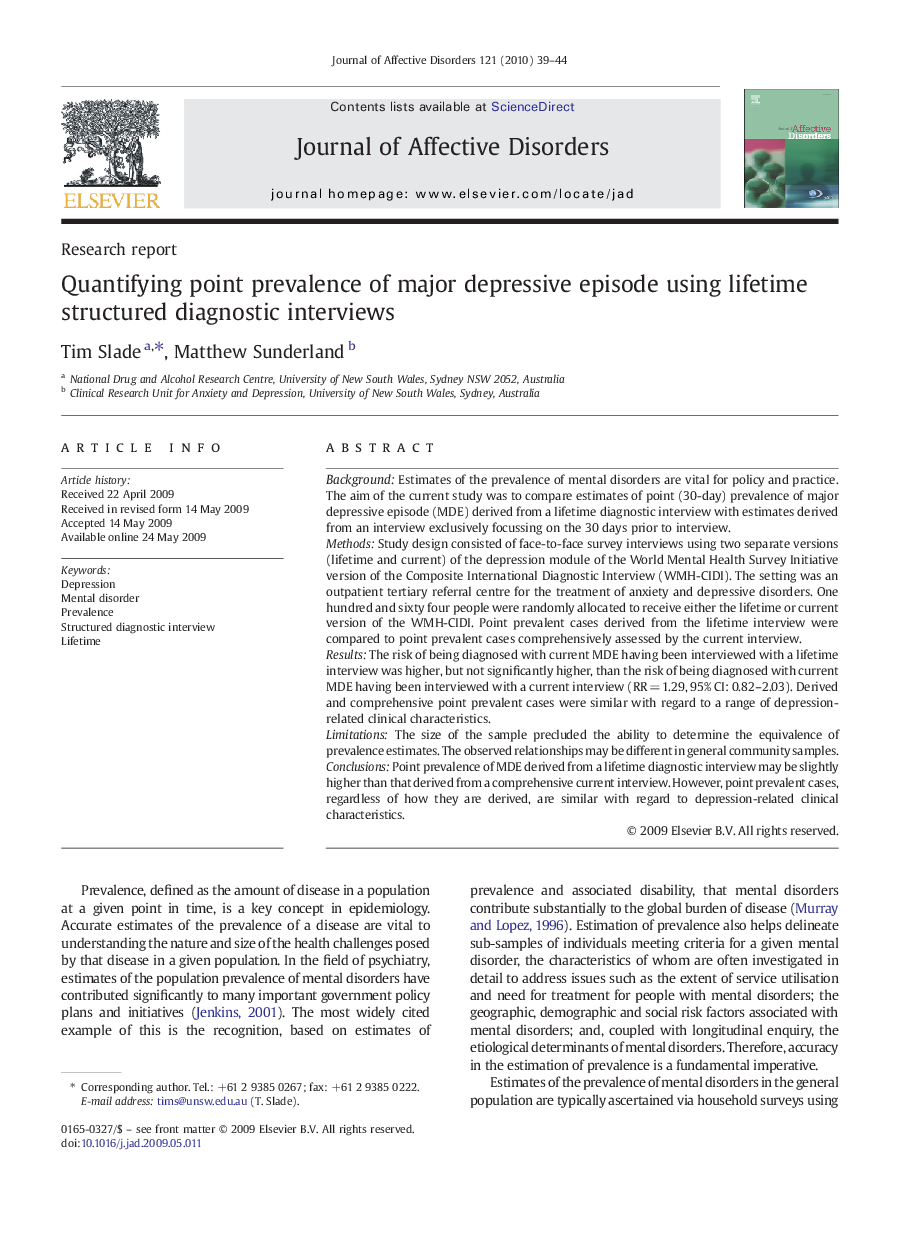| Article ID | Journal | Published Year | Pages | File Type |
|---|---|---|---|---|
| 4186886 | Journal of Affective Disorders | 2010 | 6 Pages |
BackgroundEstimates of the prevalence of mental disorders are vital for policy and practice. The aim of the current study was to compare estimates of point (30-day) prevalence of major depressive episode (MDE) derived from a lifetime diagnostic interview with estimates derived from an interview exclusively focussing on the 30 days prior to interview.MethodsStudy design consisted of face-to-face survey interviews using two separate versions (lifetime and current) of the depression module of the World Mental Health Survey Initiative version of the Composite International Diagnostic Interview (WMH-CIDI). The setting was an outpatient tertiary referral centre for the treatment of anxiety and depressive disorders. One hundred and sixty four people were randomly allocated to receive either the lifetime or current version of the WMH-CIDI. Point prevalent cases derived from the lifetime interview were compared to point prevalent cases comprehensively assessed by the current interview.ResultsThe risk of being diagnosed with current MDE having been interviewed with a lifetime interview was higher, but not significantly higher, than the risk of being diagnosed with current MDE having been interviewed with a current interview (RR = 1.29, 95% CI: 0.82–2.03). Derived and comprehensive point prevalent cases were similar with regard to a range of depression-related clinical characteristics.LimitationsThe size of the sample precluded the ability to determine the equivalence of prevalence estimates. The observed relationships may be different in general community samples.ConclusionsPoint prevalence of MDE derived from a lifetime diagnostic interview may be slightly higher than that derived from a comprehensive current interview. However, point prevalent cases, regardless of how they are derived, are similar with regard to depression-related clinical characteristics.
